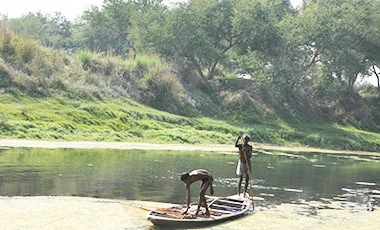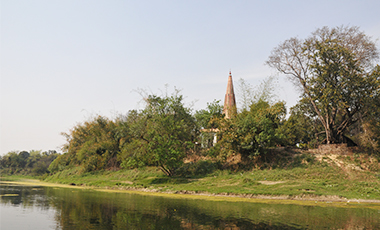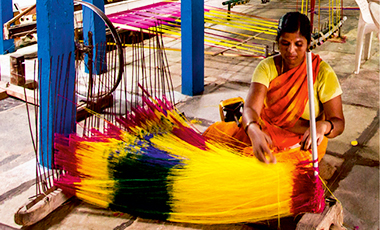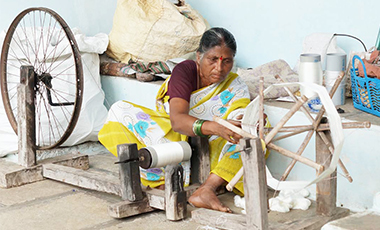Indian Trust for Rural Heritage and Development (ITRHD)
Just as the universe is contained in the self, so is India contained in the villages
- Mahatma Gandhi
Just as the universe is contained in the self, so is India contained in the villages
- Mahatma Gandhi
From the beginning, ITRHD realized that promotion of rural heritage tourism would be an extremely viable way to increase the economic base of rural communities. Tourism, if handled with sensitivity, can be an environmentally friendly industry, and one that can provide employment as well as the means for preserving a communitys heritage assets.
Rural tourism is already flourishing in many parts of India. In just one state, Rajasthan, 80% of the heritage hotels are located in rural areas. Recognizing the potential of this area, starting in 2019 ITRHD began commemorating the death anniversary of Mahatma Gandhi, 30 January, as Rural Tourism Day. In both 2019 and 2020 we hosted well-attended evenings featuring presentations from experts in relevant fields, followed by discussions with distinguished panellists and enthusiastic audiences. In 2021, the event was conducted online, and attracted a wide audience of ITRHD members. Lively discussion after the presentations resulted in creative new suggestions for collaborative projects.


In terms of ITRHD projects, the Creative Cluster of three heritage-rich villages in U.P.s Azamgarh District see Azamgarh Creative Cluster (U.P.) offers substantial potential in this regard. The initiatives undertaken so far (construction of a modern performance space in the musicians village), design intervention with the pottery and weaving villages, and upgrading of civic infrastructure in all villages will eventually provide the necessary infrastructure for attracting tourists. Since the area is within driving distance of Varanasi, which is a major tourism magnet, plans are to offer a one-day tour from Varanasi, letting visitors see the artisans at work, providing opportunities for purchasing the fine crafts, and ending with an evening performance. The preliminary idea has been discussed with some hoteliers in Varanasi, who have greeted it with enthusiasm, as it provides them with additional room nights.
In Kerala, ITRHD signed an MOU with the Kerala Institute of Tourism and Travel Studies (KITTS), to prepare project proposals for developing rural tourism infrastructure. In this connection, our team analyzed the potential of four villages in the Ajunad region in the north-eastern part of the state. See Anjunad Rural Heritage Tourism Plan (Kerala) for full project description. This is an extremely rich area in terms of heritage, with more than 5000 years of history, and rich wildlife and environmental assets. Our comprehensive plan is intended to make Anjunad a model for rural heritage tourism, and one that can be used in other rural villages of India as well.


Earlier, ITRHD had been commissioned by the Telangana government to undertake a study on the famous weaving town of Pochampally. Our team completed a socio economic survey of the village see Pochampally Weavers Village (Telangana) and made a documentary film which highlighted its tourism potential. We had also done a detailed study on its cultural and weaving traditions, vernacular arts and crafts, local cuisine, vernacular architecture, temples, natural backdrop and existing tourist centre and infrastrucutre development. Situated just an hour and a half driving distance from the state capital of Hyderabad, in an appealing rural landscape, the potential is indeed substantial.
Several other ITRHD project areas also offer untapped potential for tourism development. The living temple village of Maluti, in Jharkhand, See Maluti Living Temple Village (Jharkhand) , is within easy driving distance of a the major pilgrimage town of Tarapeeth. With the restoration of the beautiful Maluti temples almost complete, and the civic infrastructure being greatly improved, our next step is to develop the village for cultural and pilgrimage tourism, with facilities and services to be managed by the local residents.
Plans are in preliminary stages for tourism development in other project areas, especially Barmer in western Rajasthan and Rakhigarhi in Haryana. All of these are long-term initiatives, and must be developed with care and sensitivity to make sure that they benefit the local communities in sustainable and economically rewarding ways.
